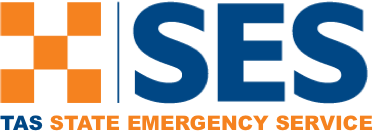After an emergency
Once you’re sure the danger has passed:
- Keep listening to your local radio station (ABC Radio is the national Emergency Broadcaster) for information, updates and advice.
- Check that everyone is present and that no one is injured.
- If you have evacuated, stay away until authorities tell you it is safe to return. Take care when travelling as roads may still be dangerous.
- Do not drink water that has been exposed to flood or storm.
- Do not eat food that has been exposed to flood or storm.
- Stay clear of creeks, drains, causeways, gutters, streams, fallen trees, power lines and any damaged buildings.
- Check to see if your neighbours need help.
If your home or property is damaged:
- If it safe to do so, check your house and property for signs of damage (you may need to get experts in to check structural stability).
- Contact your insurance company for advice. Take photos of any damage as soon as possible.
- Do not turn on your gas and electricity until you are sure it is safe to do so. Have all wiring, gas and electrical tested by an electrician.
- Follow health and safety advice when clearing up after storms (wear appropriate clothing and have experts check things like electricity, sewage and water supplies).
If you need help because of flood, storm, landslide or tsunami, call us on 132 500. There may be many people in danger or needing help, so we will prioritise the calls.
In life-threatening emergencies call Triple Zero (000).
SES volunteers are trained to assess damage, to erect temporary emergency repairs and to advise and/or assist with some preventative measures. This may include:
- placing tarpaulins on damaged roofs
- removing dangerous items such as fallen trees or branches
- giving safety advice
- providing access to homes and businesses
- rescuing people trapped or injured in damaged buildings.
Financial and emotional help
There are many agencies and groups who help after emergencies, including:
- Department of Health and Human Services for health and recovery advice and financial support
- Department of Primary Industries, Parks, Water and Environment for animal care
- community groups and welfare agencies such as Red Cross for donations of food, clothing and household goods, as well as compassion and care.
For further information, visit our contact page.

